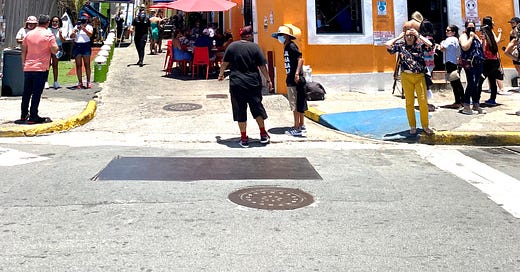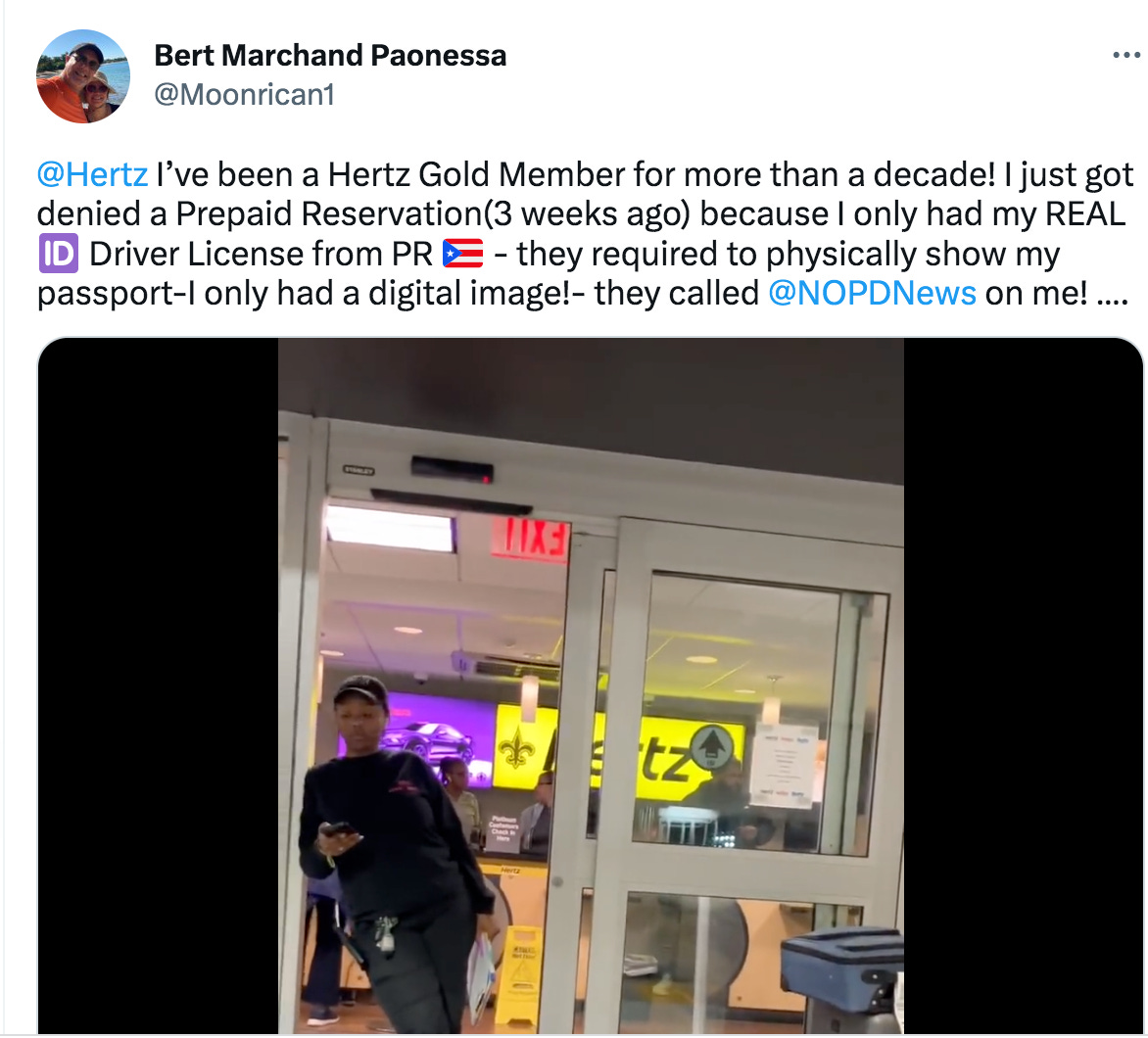Stop Calling Border Patrol - We’re American
A brief overview of the Jones-Shafroth Act and how “other” U.S. Citizens deny the citizenship status of Puerto Ricans
The Jones Act
On March 2nd, 1917, with the United States on the brink of World War I, President Woodrow Wilson enacted the Jones-Shaforth Act, solidifying Puerto Rico as a US territory and granting Puerto Ricans citizenship to the U.S. mainland.
This act also separated Puerto Rico’s government into Executive, Judicial, and Legislative branches, and endowed Puerto Ricans with a bill of rights. Additionally, the act established an insular bicameral legislature with 19 elected Senate members and 39 elected House of Representative members. It also stated that Puerto Rico’s Governor and the U.S. Executive branch possessed authorization to veto or override any law enacted by that legislature. (Library of Congress)
Despite the Jones-Shafroth Act’s effort to entice Puerto Ricans to join the U.S. military, there was a low turn-out rate and President Wilson quickly enacted the Selective Service Act of 1917. This second act allowed the U.S. to draft soldiers, including Puerto Ricans. According to the Library of Congress, approximately 20,000 Puerto Rican service members served in World War I and 65,000 fought in World War II.
Puerto Ricans gained U.S. citizenship in exchange for fighting in World War I in 1917, but in 2023, Puerto Ricans continue to struggle in accessing the rights granted to them over 106 years ago.
Typical American
According to a survey by The Pew Research Center, Hispanics and Latinos often identify themselves by their family’s Hispanic origin group. However, according to the survey, views of identity and the terms Hispanic use differs some by Hispanic origin and other demographic factors. When describing their identity, more than half (54%) of Hispanics say they most often use the name of their ancestors’ Hispanic origin (such as Mexican, Dominican, Salvadoran or Cuban).
When identifying as a “typical American” or “very different from a typical American,” Hispanics and Latinos are torn.
Puerto Ricans are among the most likely Hispanic origin group to say they think of themselves as a typical American, with 57% saying this while 38% say they think of themselves as very different from a typical American. (People born in Puerto Rico are U.S. citizens by birth.)
By contrast, just 35% of Salvadorans say they think of themselves as a typical American, while 51% say they are very different from a typical American. And among other Central American Hispanics in the U.S., one-third (33%) say they think of themselves as a typical American, while 56% say they are very different from a typical American. (The Pew Research Center)
It is not shocking to see the statistics backing the very idea granted by the Jones-Shaforth Act: Puerto Ricans identify as Americans because they are Americans. With each new generation born on the island or on the U.S. mainland, there is a consensus that while they can claim the title of Boricua, they can also claim American. It’s a dual nationality crisis for an island of people that have never seen true independence. (Read more about Puerto Rico’s association with independence - or lack of - in a previous article: Fourth of July: Puerto Ricans Need Not Apply)
Typical American vs Typical ’Merican
As the U.S. continues to grow in its divisive narrative among the diverse population, it emphasizes the foundation of multi-cultural life in America: Puerto Ricans may feel and identify as “typical Americans” - a right granted to them in 1917 - but the rest of America - White America - will never accept it.
Over the years, the validity of Puerto Rican U.S. citizenship has been inadequately debated within White America. Sending Puerto Ricans “back to where they came from” and threatening them with a call to border patrol is frequent and one that Puerto Ricans are tired of.
Headlines like A Puerto Rican man applied for a license. Georgia officials arrested and jailed him for fraud are frequent in major publications like The Washington Post and the AP.
Yesterday, The New York Times, released a story about a Puerto Rican man denied access to a prepaid Hertz car rental at the Louis Armstrong New Orleans International Airport after the Hertz employee deemed his driver’s license from Puerto Rico invalid and classified the man as foreign and in need of a passport.
The man, Humberto Marchand, recorded and described part of the incident at the Hertz counter in Kenner, La., and shared it on Twitter on May 10. It was widely viewed as others told similar stories of how Americans often fail to realize that people born in Puerto Rico, a U.S. commonwealth, are American citizens.
“It is a valid ID,” Humberto Marchand says several times while beginning to record the Hertz employee, “It is a prepaid reservation.”
The response from the employee? “Would you like me to call the police?”
Mr. Marchand is heard saying, “Call the police. I am not doing anything illegal,” as the employee responds, “Yes you are.”
According to The New York Times article, when asked on Monday about the incident, Hertz said in a statement that the employee had not followed policy. It said the company accepts Puerto Rican driver’s licenses from customers renting in the United States, without requiring a passport. “We sincerely regret that our policy was not followed and have apologized to Mr. Marchand and refunded his rental,” the company said. “We are reinforcing our policies with employees to ensure that they are understood and followed consistently across our locations.”
After the police officer arrived, he asked Mr. Marchand to leave due to the cause of a disturbance and threatened to call border patrol if he did not leave. The officer, according to The New York Times, denied to comment on his actions.
The shock factor?
An American police officer calling border patrol to deport an American citizen.
Only half of the country knows Puerto Ricans are U.S. citizens. A 2017 poll by Morning Consult found that only 54 percent of Americans know that people born in Puerto Rico, a commonwealth of the United States, are U.S. citizens - a statement highlighting the lack of common knowledge of such a critical piece of history.
This finding varied significantly by age and education. Only 37 percent of people ages 18 to 29 know people born in Puerto Rico are citizens, compared with 64 percent of those 65 or older. Similarly, 47 percent of Americans without a college degree know Puerto Ricans are Americans, compared with 72 percent of those with a bachelor’s degree and 66 percent of those with a postgraduate education.
Even after a postgraduate degree, only 66 percent of Americans know Puerto Ricans are U.S. citizens - that means, only two-thirds of people with a master’s, professional or doctoral degree (American’s academic elite) still do not know Puerto Ricans are U.S. citizens.






This is also an issue for residents of the U.S. Virgin Islands which include: St. Croix, St. John, and St. Thomas. I had a colleague who was denied an opportunity to teach in the U.S. because her 5 years teaching in St. Croix was not recognized as a U.S education system experience-by HR. She appealed the decision and provided proof that her former students graduated with a U.S. high school diploma. We should teach history from a variety of lenses and lived experiences.